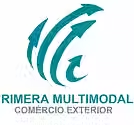top of page

The Mercosur Common Nomenclature (NCM) is an 8-digit code that identifies the nature of each good in Brazil; its global equivalent is the HS Code. Without the correct classification:
-you may pay incorrect or duplicate taxes ;
-your cargo is at risk of retention or fines;
-licenses, certifications and approvals may be denied.
-
-Fines for delay in cargo removal (demurrage & storage).
-Lack of insurance coverage in critical sections.
-Contractual disputes in case of damage.


bottom of page



